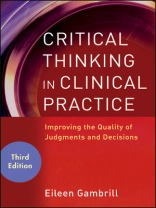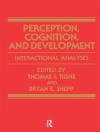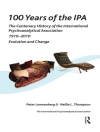Praise for Critical Thinking in Clinical Practice,
Third Edition
‘Eileen Gambrill is unparalleled in her ability to describe
common flaws and biases in clinical decision making. The result in
this revised edition is a steadfast call for change that also
acknowledges the demands of practice. A must-read for clinicians
and researchers alike.’
–Elizabeth K. Anthony, Ph D, Assistant Professor,
School of Social Work, Arizona State University
‘This Third Edition builds upon the impressive strengths
of Gambrill’s prior treatments of the topic to support the notion
that critical thinking is a teachable skill and one
essential for contemporary practice in the human services. This
book should be the default authority on the topic of critical
thinking for human service professionals and would be an excellent
textbook.’
–Bruce A. Thyer, Ph D, LCSW, Professor and former Dean,
Florida State University College of Social Work
‘I was skeptical about how Critical Thinking in Clinical
Practice could be improved, but Eileen Gambrill has succeeded!
Her articulation of critical thinking skills for clinical decisions
ultimately will benefit the people we serve.’
–Joanne Yaffe, Ph D, ACSW, Associate Professor of
Social Work and Adjunct Associate Professor of Psychiatry,
University of Utah
A balanced and illustrative guide to incorporating
critical-thinking values, knowledge, and skills into clinical
education and practice
Now in a third edition, Critical Thinking in Clinical
Practice is written for helping professionals who want to think
more clearly about the decisions they make and the context in which
they make them. It is a practical volume for clinicians who would
like to expand their knowledge of common pitfalls and fallacies in
clinical reasoning.
As in earlier editions, this Third Edition draws on
research related to problem solving and decision making,
illustrating the relevance of research findings to everyday
clinical practice and policy.
Revised throughout, the new edition includes discussion of:
* The influence of pharmaceutical companies on the helping
professions, including disease mongering–the creation of
bogus risks, problems, and needless worries
* Different kinds of propaganda in the helping professions that
compromise informed consent
* Additional coverage of classification, pathology, reliance on
authority, and hazards in data collection
* The development of decision aids of value to both professionals
and clients
* The relative contribution of specific interventions compared to
nonspecific factors to positive outcome
* Factors related to decision making in multidisciplinary
teams
* New developments regarding intuitive and analytic
reasoning
* The pragmatic theory of fallacies
Designed to enhance the quality of services offered to clients,
Critical Thinking in Clinical Practice, Third Edition is
filled with insightful examples, useful lists, websites, and
guidelines, presenting an essential resource for all helping
professionals and students in the helping professions.
Cuprins
Preface ix
Part I: Lay of the Land
1 The Need for Critical Thinking in Clinical Practice 3
2 Sources of Influence on Clinical Decisions 29
3 R easons and Reasoning: The Heart of Making Decisions 57
4 Different Views of Knowledge and How to Get It: Exploring Your
Personal Epistemology 87
Part II: Common Sources of Error
5 The Influence of Language and Persuasion Strategies 131
6 Formal and Informal Fallacies: Mistakes in Thinking and How to
Avoid Them 155
7 Classification, Authority, and Focusing on Pathology 181
Part III: Decision Aids
8 Content and Procedural Knowledge 209
9 Taking Advantage of Research on Judgment, Problem Solving, and
Decision Making 239
10 Evidence-Based Practice: A Philosophy and Process for Making
Informed Decisions 275
11 Posing Questions and Searching for Answers 297
12 Critical Appraisal of Practice- and Policy-Related Research:
The Need for Skepticism 335
Part IV: Applying Critical Thinking Skills to Clinical
Decisions 13 Making Decisions About Data Collection 377
14 Discovering Causes of Clients’ Problems: Common Biases
409
15 Making Predictions: Improving the Odds 453
16 Enhancing the Quality of Case Conferences, Team Meetings, and
Organizational Culture 481
Part V: The Future
17 Overcoming Personal Obstacles to Critical Thinking 509
18 Maintaining Critical Thinking Skills 533
References 549
About the Author 623
Author Index 625
Subject Index 641
Despre autor
Eileen Gambrill is the Hutto Patterson Professor of Child and Family Studies at the School of Social Welfare, University of California, Berkeley, where she teaches both research and practice. Her research and writing cover professional decision making, evidence-informed practice, the role of critical thinking, propaganda in the helping professions and its harmful effects, and the ethics of helping. She presents nationally and internationally on the topics of critical thinking, evidence-informed practice, and the ethics of helping.












